Cosponsored by Disruptive Technologists
and the New York Chapter of the Federal Communications Bar Association
Infrastructure in this sense could be physical (fiber in the ground) – or open source software, legal/policy, etc. – more broadly any type of support structure.
This will be the beginning of ongoing initiatives to address the issues raised and follow with hackathons afterwards. A major component will be the development of standards and protocols for new Net-connected technologies with consideration of the social and ethical issues as machines become intelligent. We’ll also explore innovative funding methods for these projects using digital currencies.
David Solomonoff, President, Internet Society of New York
November 11, 2014
Fell Hall, 205 State Street, Brooklyn, New York
10:00 am to 8:00 pm
Admission: $20.00
Students with valid ID admitted free of charge
Zephyr Teachout, New York gubernatorial candidate, organizer, educator, and scholar
Teachout is a constitutional and property law professor at Fordham Law School. She is a deeply experienced leader in the fights for economic and political equality and against concentration of wealth and control in the hands of the few. She is one of the leading legal experts on corruption.
Timothy Karr, Senior Director of Strategy, Free Press
Timothy builds on Free Press’ grassroots and policy work to promote universal access to open networks and protect free speech everywhere. Before joining Free Press, Tim served as executive director of MediaChannel.org and as vice president of Globalvision New Media. He has also worked extensively as an editor, reporter and photojournalist for the Associated Press, Time, Inc., the New York Times and Australia Consolidated Press. Tim critiques, analyzes and reports on media and media policy for the Huffington Post.
Serene Han, Ideas Engineer, Google
Technological initiatives to help people confront threats in the face of conflict, instability, and repression
Dave Burstein, publisher, DSL Prime:
Wireless Engineers predict 50x improvement in capacity; How do we make it so?
Spectrum should be WiFi and less licensed. WiFi wiil do more and more, becoming increasingly crowded. Mobile carriers, using existing spectrum, can increase their capacity using MIMO and more with little or no increase in capex. Logical policy: All newly available spectrum go to WiFi/unlicensed.
Bob Frankston, Ambient Connectivity – merging wired and wireless telecom infrastructures
Co-creator with Dan Bricklin of the VisiCalc spreadsheet program and the co-founder of Software Arts, the company that developed it. In recent years, Frankston has been an outspoken advocate for reducing the role of telecommunications companies in the evolution of the internet, particularly with respect to broadband and mobile communications. (remote)
Sander Rabin: Neurosecurity, National Security and Cognitive Liberty
Sander Rabin, a physician-attorney, is the executive director of The Center for Transhuman Jurisprudence, a not-for-profit organization whose mission is education in human enhancement and the development of policies and model rules of law for human enhancement that protect our rights to our minds, bodies and genomes, while minimizing human enhancement’s potential for divisiveness and harm.
Nate Heasley, Executive Director, Goodnik
Goodnik has developed a labor-backed digital currency for information workers to share resources with non-profits and for-profit companies with a social mission.
Nate has been working as a manager of and consultant to non-profit and technology related companies for 20 years. Nate also founded GrassrootsCamp, an organization that provides free training seminars to non-profit organizations and social entrepreneurs. It is from that experience that Goodnik started as a way to broaden the impact of those events and ideas from that community. Nate holds a BA from St. John’s College in Annapolis, MD and a J.D. from Fordham University School of Law where he was a Crowley Fellow in International Human Rights and a Stein Scholar for Public Interest Law and Ethics.
Jim Dutcher, CIO, State University of New York, Cobleskill
How broadband is transforming rural America and what is needed now
Panel: Bitcoin and related cryptocurrency-related technologies
• Margaux Avedison, Moderator. Co-founder of EvotionMedia, a “Crypto-Media” production and finance entity. She is on the advisory board of the Bitcoin Shop and organized the first Bitcoin Education Day on Capitol Hill as an Advisor for the Chamber of Digital Commerce.She also consults for banks, individuals, large corporations and venture capitalists on Bitcoin and Blockchain 2.0 technology. She is an early entrepreneur in the digital currency space and relaunched the first American Bitcoin Exchange, Tradehill, in 2012.
• Erik Anderson, Chairman, WC3 web payments group. Lead/Senior Software Engineer for much of Bloomberg’s Charting, Technical Analysis, Trading Strategies, Data Science, Interactive Data Visualization, Backtesting and Technical Analysis Screening, Core Graphics Infrastructure, math/Quants Developer, Financial Services
• Attorney Jeffrey Alberts, Partner in Pryor Cashman’s Litigation Group. Head of the firm’s White Collar Defense and Investigations Practice. Jeffrey’s practice focuses on government investigations and prosecutions and related regulatory proceedings, asset forfeiture and money laundering litigation, victims’ rights representation, and complex civil litigation. Jeffrey is an experienced trial lawyer who has served as lead counsel in numerous trials, including civil and criminal federal jury trials, state jury trials, and state and federal bench trials. Jeffrey has represented clients in disputes involving virtual currency. He also has been quoted by the media concerning criminal prosecutions of virtual currency service providers and government seizures of bitcoins. Immediately prior to joining the firm in 2013, Jeffrey spent six years as an Assistant United States Attorney in the Criminal Division of the U.S. Attorney’s Office for the Southern District of New York, where he investigated and prosecuted a wide variety of white collar criminal offenses, including money laundering, securities fraud, bank fraud, mail and wire fraud, and bankruptcy fraud.
• Adam Krellenstein, Co-founder Counterparty. Lead developer of counterpartyd; chief architect of the Counterparty Protocol. Counterparty is a free and open platform that puts powerful financial tools in the hands of everyone with an Internet connection. By harnessing the power of the Bitcoin network, Counterparty creates a robust and secure marketplace directly on the Bitcoin blockchain, extending Bitcoin’s functionality from a peer-to-peer payment network into a full fledged peer-to-peer financial platform.
- Patrick Deegan CTO, ID3 Chief Architect. ID3 is developing a new social ecosystem of trusted, self-healing digital institutions. This endeavor seeks to address the severe structural limitations of existing institutions by empowering individuals to assert greater control over their data, online identities and authentication.
Panel: Hear Me, Touch Me, See Me, Feel Me: Moving Natural User Interface (NUI) to the Mainstream
This panel discussion will explore the world of NUI and what it will take to move today’s emerging NUI technologies (voice recognition, Kinect, haptics, facial recognition, etc.) into widespread adoption and make them accessible to all.
- Deb Benkler, Moderator. Co-founder of NUI Central – NY, the largest NUI group on earth and is known as NYC’s leading NUI evangelist. She is a practitioner of lean and logical UX focusing on best practices in the broader context of CX (customer experience). In 2012, she won a User Experience Award for her work on the Maryland Transit Administration Interactive Maintenance Kiosk, which incorporated facial recognition.
- Ken Lonyai Co-founder of NUI Central and is known as the other NYC leading NUI evangelist. He’s a 15+ year veteran of user centered interactive project development including some of the industry’s most unique experiential systems. His skills span the on-line world and nearly every realm of human/computer interface used by brands and retailers – mobile, interactive kiosks, experiential displays, etc. He is a User Experience Award winner.
- David Melville is a Research Staff Member at IBM. He has worked in the area of semi-conductor fabrication and nano-technology, exploring meta-materials and techniques for optimizing illumination and patterning masks for photo-lithography processors before making a jump to developing visualization and interactivity solutions for smart-grid projects. Most recently, he has been exploring what it means to interact with learning systems and working to establish a new era of computing experience.
- Sean Montgomery is head of hardware at Ringly, the first fashion ring to manage your mobile device. He’s an engineer, professor, and new-media artist in New York City. While finishing his Ph.D. in neuroscience, Sean began to consider the fact that from the perspective of a neuron inside the human brain, both a cold winter day and the embrace of a loved one feels like a sequence of electrical impulses. Sean co-founded SENSORSTAR Labs, an agile R&D consulting group in New York City.
- Tanya Kraljic is a Principal Designer for Nuance’s mobility division. Her work focuses on the strategy and design of speech experiences in mobile, wearable, in-home, and other emerging technologies. Prior to joining Nuance in 2010, Tanya earned a PhD in cognitive psychology, with an emphasis on adaptation in interactive spoken dialog.




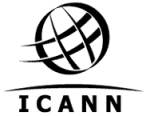
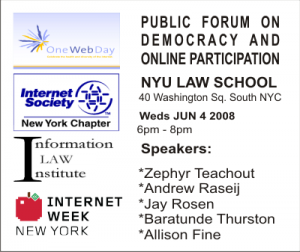
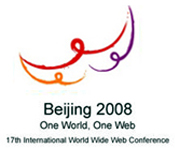 Thanks to Graham Webster of CNET’s
Thanks to Graham Webster of CNET’s 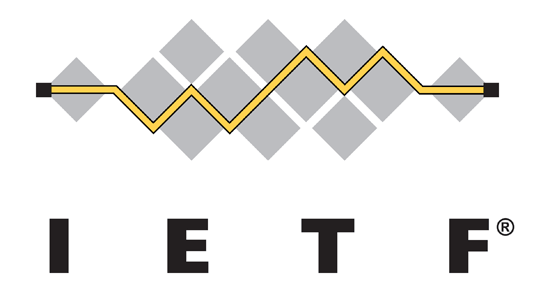 The Real-time Applications & Infrastructure (RAI) Area of the Internet Engineering Task Force (IETF) will hold a workshop on P2P Infrastructure on May 28, 2008 at 50 Vassar St, Room 34-101 on the MIT campus in Cambridge, MA USA. They are calling for papers to be submitted before May 9.
The Real-time Applications & Infrastructure (RAI) Area of the Internet Engineering Task Force (IETF) will hold a workshop on P2P Infrastructure on May 28, 2008 at 50 Vassar St, Room 34-101 on the MIT campus in Cambridge, MA USA. They are calling for papers to be submitted before May 9. 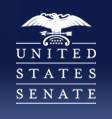 On April 22 2008 the United States Senate Committee on Commerce, Science and Transportation held
On April 22 2008 the United States Senate Committee on Commerce, Science and Transportation held 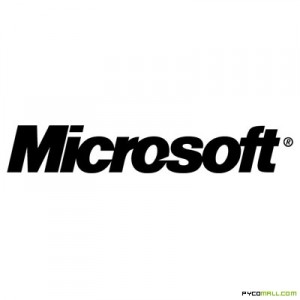 In an opening keynote address at the
In an opening keynote address at the 
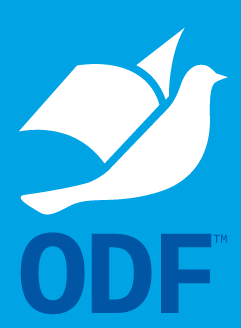 26 March 2008: Today is the world’s first
26 March 2008: Today is the world’s first  At the December 2007 Board of Trustees meeting held in Vancouver, ISOC presented plans for 2008 to 2010. Key to those plans were a series of new, longer term, more strategic activities which will replace the traditional ‘pillar’ model describing activities in Standards, Public Policy, and Education. The new initiatives will focus on ‘
At the December 2007 Board of Trustees meeting held in Vancouver, ISOC presented plans for 2008 to 2010. Key to those plans were a series of new, longer term, more strategic activities which will replace the traditional ‘pillar’ model describing activities in Standards, Public Policy, and Education. The new initiatives will focus on ‘